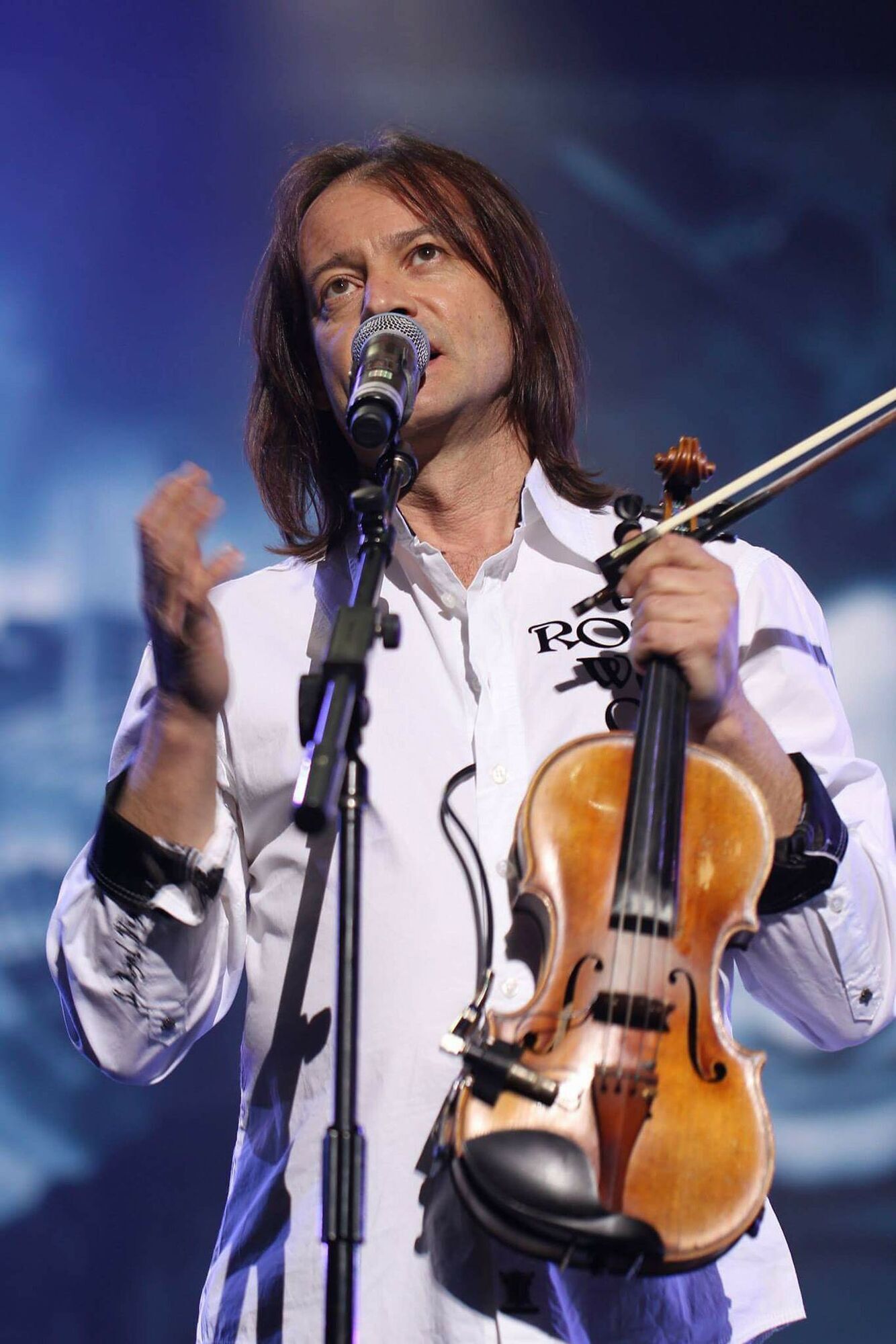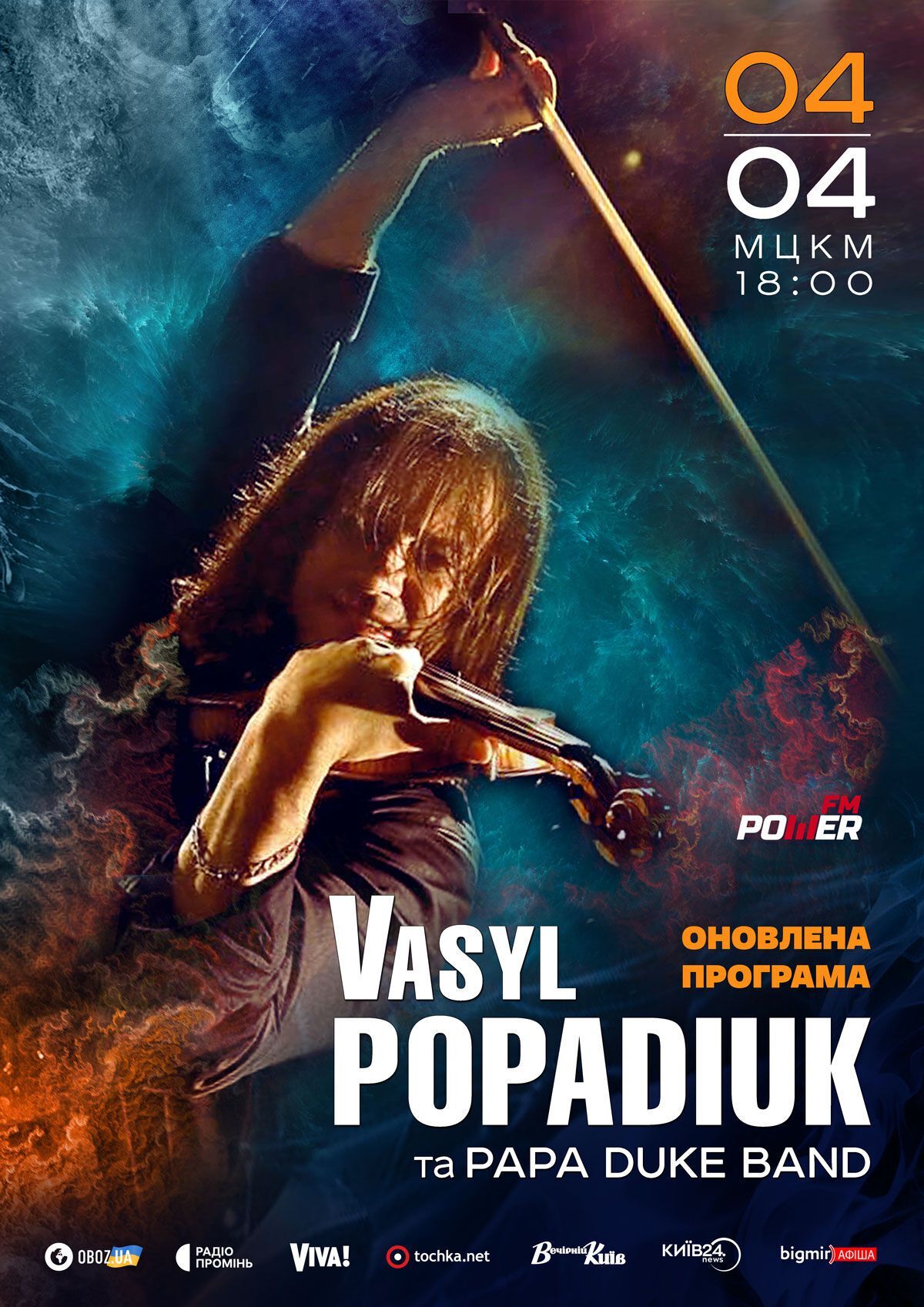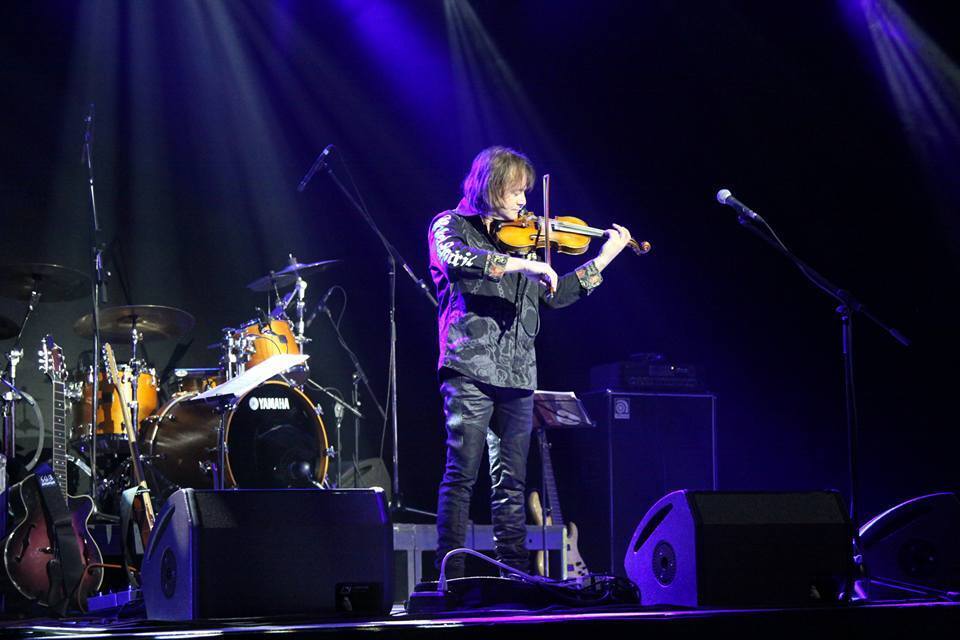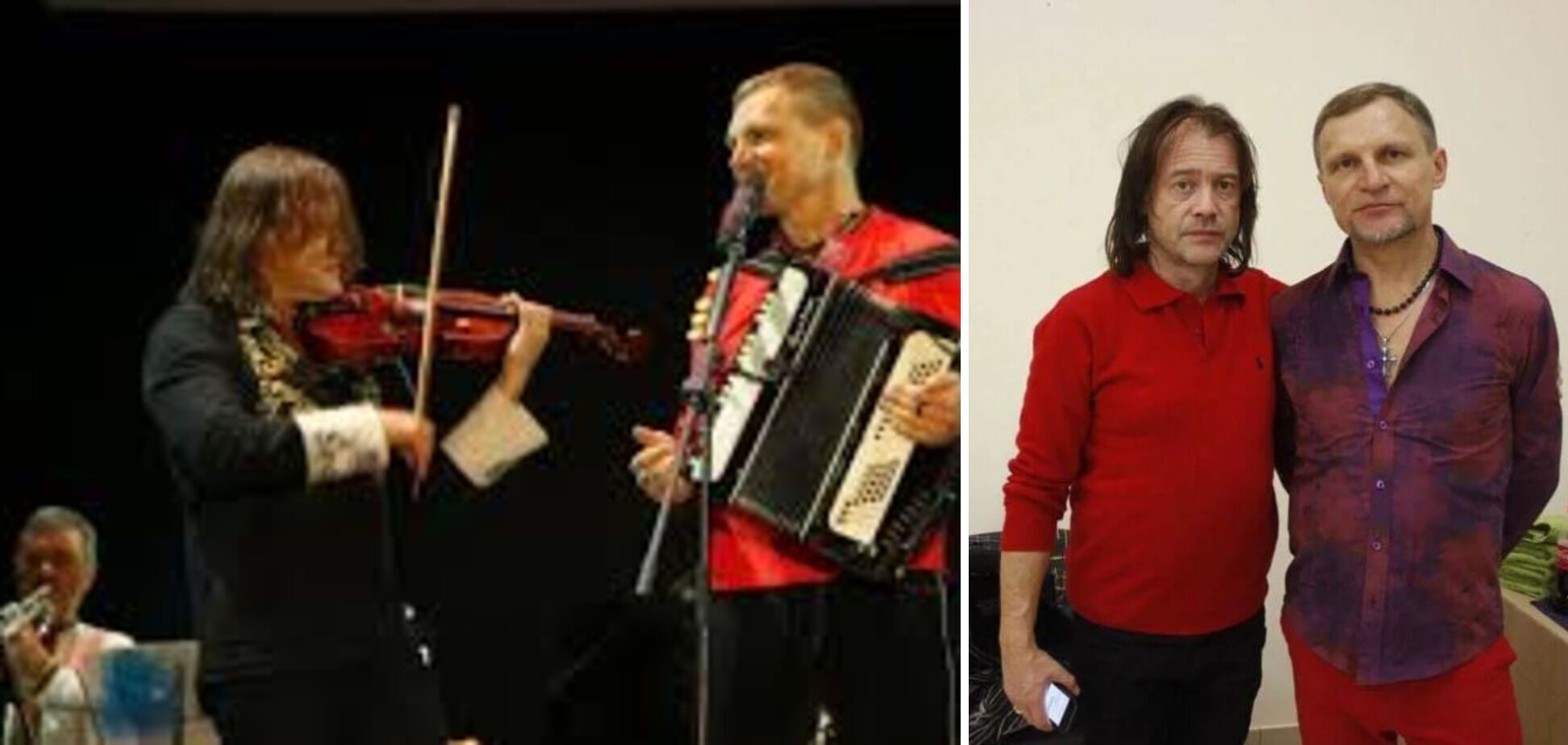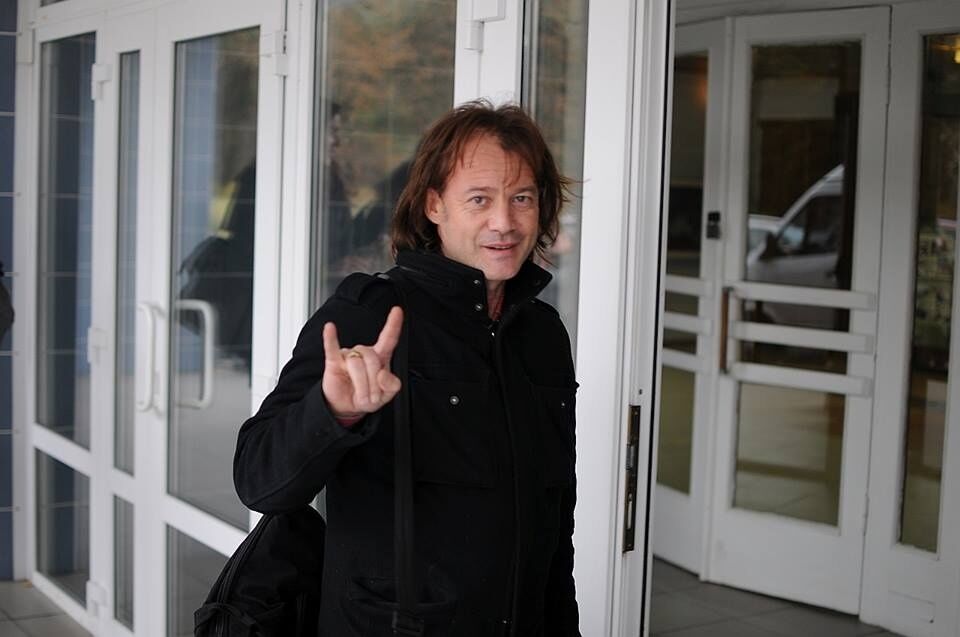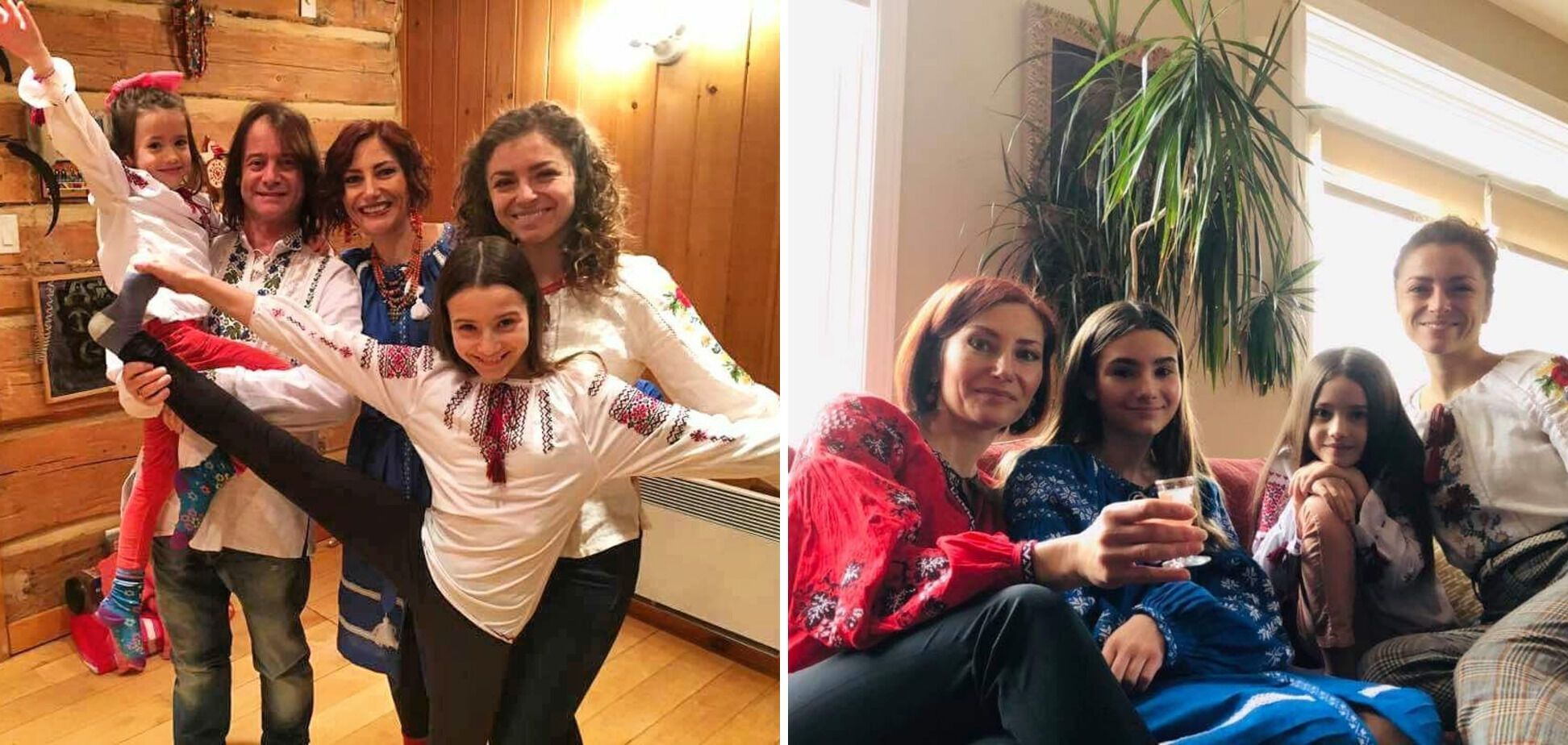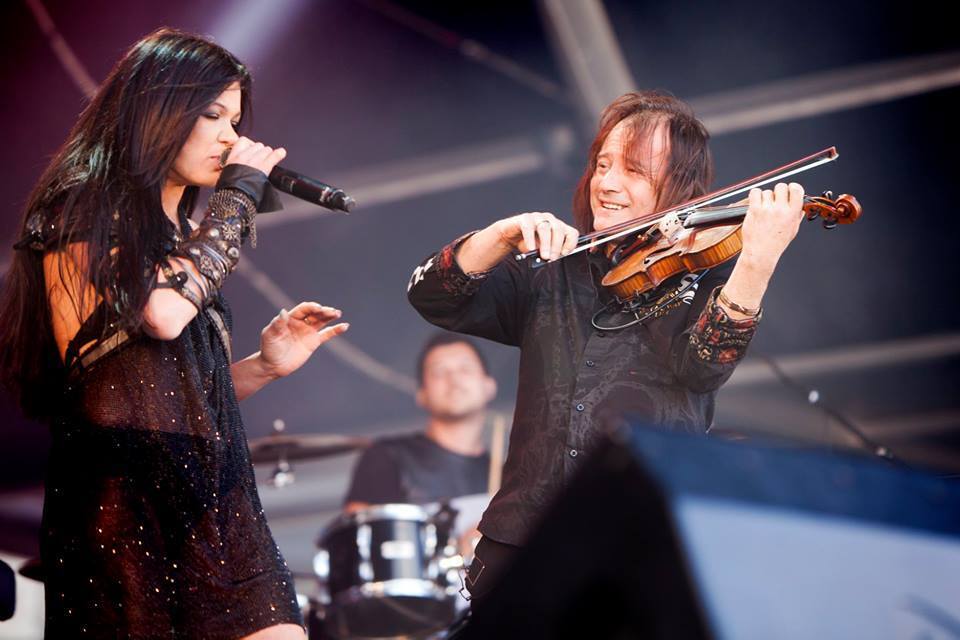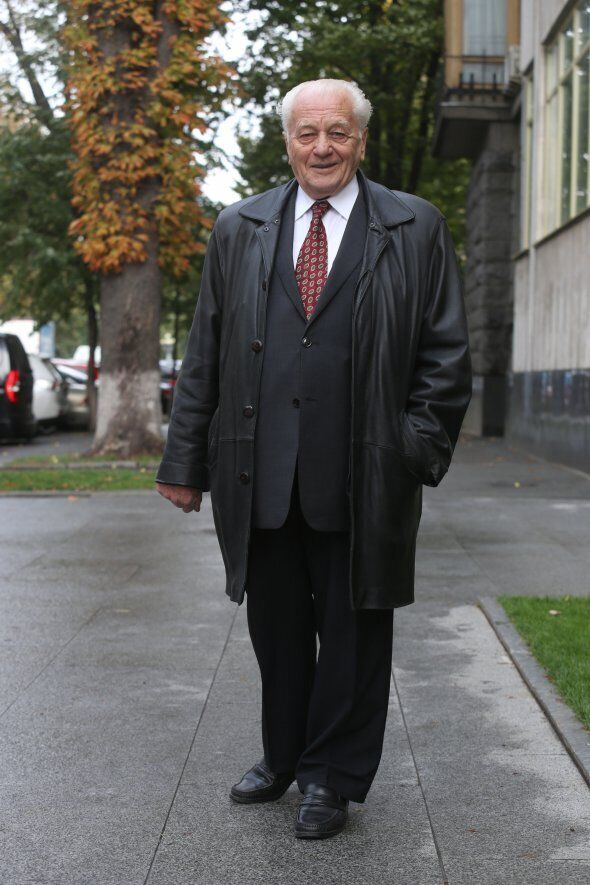Entertainment
"She was greeted by Ukrainian flags every morning": Vasyl Popadiuk on his Russian neighbor, life in Moscow and his father-in-law Stepan Khmara
Vasyl Popadiuk, a world-renowned Ukrainian violin virtuoso, has been living in Canada for over 30 years. However, he gives performances in his homeland from time to time.
On the eve of his big tour of Ukrainian cities, the artist, who plays 15 other instruments in addition to the violin, told OBOZ.UA about the life of Ukrainians abroad, his daughters, and his wife Solomiia, the daughter of the famous Stepan Khmara.
- How often do you visit Ukraine now?
- The last time I came to Kyiv was in December. My mother lives there. Unfortunately, she is ill. After my brother's death, she became very weak, and I had to seek help from a private nursing home. She can no longer take care of herself, and I am far away. I have been living in Canada for more than three decades. I first came here in 1988, then in 1993. Three years later, I received the necessary documents. In Ottawa, where I live with my family, there is no Ukrainian neighborhood, and we live in the so-called Italian neighborhood. However, there are a lot of Ukrainians here, even our church, which I will pass as I speak to you.
- In one of your interviews, you said that after the Russian invasion of Ukraine, you installed a blue and yellow flag on your house, and your Irish neighbor did the same in support of you. We know that a Russian woman lives across the street, and when she leaves her house, she is greeted by two Ukrainian flags. How is she doing? Does she talk to you?
- She might want to talk to me, but I don't talk to her. Before, when she went out, she was greeted by two Ukrainian flags every morning. I still have my flag up, but the Irishman took it down, I don't know why. He and I are on good terms. He always asks about Ukraine.
And my neighbor, I think, does not support Putin. She has been living in Canada for a long time, but I still have no desire to communicate with her. She does nothing wrong: she raher sits like a mouse in her house. I know many Russians who are against the Kremlin system. I was on tour in Madrid recently and I met a friend with whom I used to work. He is a Muscovite, but he is a Tatar by nationality. This man hates Putin terribly. He sincerely supports Ukraine.
- How do you feel about the fact that artists in Europe continue to perform Russian works?
- Who performs? To be honest, I don't follow the news.
- For example, Oleksandr Stoianov, former premier of the National Opera and husband of People's Artist of Ukraine Kateryna Kukhar, and a group of colleagues are traveling around Europe with the ballet Swan Lake by Pyotr Tchaikovsky.
- But Tchaikovsky is from Ukraine. I don't even know what is purely Russian in their classics. They stole everything. Hlinka came to Italy, was taught a little bit there, came back home, and since then they have had a little bit of classical music. Before that, they played only balalaikas.
- There is a time in your biography when you lived and worked in Moscow.
- I worked in a musical theater under the direction of Vladimir Nazarov. We performed mostly abroad, and we toured so often that, to be honest, I didn't even feel like I was living in the U.S.S.R. There were representatives from all the republics in the group: it was a theater of music of the peoples of the world. It was here that I was taught to play different instruments, we experimented with musical styles, and immersed ourselves in different cultures. I was in the theater as a Ukrainian, Moldovan, Arab, Armenian, Gypsy, Frenchman, but not as a Russian. There was a Russian number in the repertoire, in which I defiantly did not participate. In Moscow, I was called Vasyl, not Vasya. Even in those days. With the collapse of the Soviet Union, I returned home. Vladimir Nazarov himself is also from Ukraine, and he is against Putin. In 2014, he left his position as artistic director of the theater. Two years later, he moved to Ukraine and received our passport.
- What the Russians you used to work with called you after the Russian invasion?
- Yes, they wrote all sorts of nonsense in messengers. It's incredible how people have been brainwashed. And some people even unfriended me, and I was even pleased about that. This was even funny. Do you know why they were so mad? Because when they wrote all kinds of nonsense, I responded by sending them a song by the TIK band "Katsapy" (Muscovites), which contains the line, "F*ck you, Muscovites!".
I was once friends with the artist Nikas Safronov. I used to visit him at home. He also called me during the war, saying, "Vasyl, it will be over soon!". I asked him to go f"ck himself and that was it. The end of the friendship.
- Is it true that your violin was once stolen in Russia and then in Canada?
- I had my violins stolen three times... First in Moscow, then in Ottawa. The last one was in America, last September. I was performing with Oleh Skrypka in Washington, DC. They broke a window in my car, which was parked in the parking lot, and took the violin and the trumpet that we had rented for Oleh. They couldn't take the accordion. The trumpet was later found, and the thief took it to a pawnshop, which is how we found him. But he won't tell us where the violin is.
- Is it very expensive?
- Yes, they are all very expensive. The one I lost in the US was kindly lent to me for long-term use. Now I have to either give back the money or buy another violin of equal value. I have one of the same value. I will probably give it away. And that's not all the adventures that happened to us during that trip. When we were returning from America to Canada by car, where we had a concert scheduled, I lost my passport. We went to Duty Free to buy cigarettes, and I was holding that passport in my hands, I remember it clearly. And then it just disappeared. We searched and searched but never found it.
What should we do? I told him to drive on at his own risk. We arrived at the Canadian checkpoint, I put my driver's license in the booth and explained the situation. The border guard looked at his computer, "It's not the first time you've lost it!" And I have such a bad habit. "Well, go ahead," he adds. Oleh Skrypka was so surprised, you should have seen it! He said, "Is that all? What do you mean? They refuse to put me in a hotel with a driver's license, and here I am crossing the border."
I even had a case when I got to America without a passport. I was supposed to perform with my band in Nashville. I got up in the morning and, as sometimes happens, I couldn't find my passport (laughs). And they change them every five years here, and the old ones have to be damaged somehow: you can cut off a corner or make a hole so that it's not valid. Thus, I took this cut passport and left. There is a terminal at the Toronto airport that serves only those flights that go to the United States. That's where the customs is.
I approach them and explain the situation. The employee looks at me as if I were an alien. Then he says, "You have three options. First, you go home and look for your passport. The second is that we arrest you and you pay a big fine. And the third option is that we'll figure something out. Meanwhile, all my colleagues had already passed the control, and I was sidelined. I ended up in a cesspool with some Taliban. I'm sitting there, waiting. They call me up and say, "You're lucky! Our boss saw you at festivals, and he has a Ukrainian girlfriend. So we're going to write you a certificate saying that you lost your document at the airport." And they wrote out a piece of paper and we all took pictures with it later. It's impossible to get to the United States without documents, but I managed to do it. And they let me back in because I was returning home. The main thing is that I have my driver's license with me (laughs).
- What language do you speak in everyday life?
- I speak only Ukrainian with my wife. Our daughters were born here, they speak English with each other, and Ukrainian with a Canadian twang. At school, they speak French. Moriana, the eldest, is 28 years old. She already lives separately and is doing well. Sofia is 19 and Katrusia is 14. And it's just crazy because it's a transitional age. They say they don't want to study, don't want to do anything. I don't know what will grow out of these children (laughs).
- Three languages is already very good! Is it true that you once said that if the question of emigration arose now, you would not leave Ukraine?
- It is one hundred percent true, although I love Canada very much and feel at home here. I've already said it in an interview: Canada is Ukraine with a major overhaul. There are really a lot of Ukrainians here. I was having coffee (and the day before I was given a T-shirt with a Ukrainian inscription in Barcelona, which I put on) just yesterday and a couple of Canadians came up to me. They said, "We are Ukrainians too!". However, they were born in Canada.
I must say that many things are better organized in Ukraine than in Canada now. This was not the case when I left. The food is very tasty, the service is at a high level. I really like that everything can be done quickly. Canada used to be more progressive, but now they don't change anything. It's very difficult to push something new, they don't need it, they're happy with everything.
Once the air conditioner in my house broke down, the Canadians came and said, "You need to change the whole system, it will cost 8 thousand dollars." And then a repairman came to visit, who had moved from Donetsk (by the way, he spoke to me in perfect Ukrainian). He made something for $250 and it worked. He says that technology has advanced in Ukraine.
- How do Ukrainians who arrived after the Russian invasion live?
- Those who know the language are more or less fine. Others have a hard time. But it is still much easier for them than it was for us. They get help with all the documents, work visas, a bank account, free travel. This is also a significant help. We had to fight for everything. When I arrived in Canada, I had $100, a toothbrush and a violin. And then people said to me, "So you moved here rich." One of my friends, who now owns a golf club, two factories, and a Ukrainian restaurant, came here with five dollars in his pocket.
Acquaintances are very important here. They say there is no corruption in Canada. It does exist, but it is different. Here, everything is based on recommendations, and it's hard to achieve something right away if you just arrived and don't know anyone. But those who want to work will eventually find themselves. However, you have to work hard. Canada is also called a labor colony with enhanced nutrition. The myth that goes around Ukraine that money grows on trees here is not true. You have to work hard.
When one of the IDPs I know gets depressed, I say, "Don't be! It's just like joining the army." Everything falls into place after two years by some miracle. When you arrive, you're a nobody and nobody cares who you were before. However, you slowly become someone. And here no one cares who you were before emigration. There's even a joke: if you feel sick on the street, call a taxi because the taxi driver is very likely to be a doctor in his past life.
- What do you hear about Ukraine now? Is it true that people abroad are tired of the war?
- I haven't noticed any drastic fatigue from the war, and I haven't noticed any negativity either. But what can I say is that the war has tired everyone. We need to bring the victory closer, which will surely come because the power of light will win anyway. And we need to help this victory to happen, as much as we can in our own place.
- Where Ukrainians who have found temporary refuge in Canada are from?
- I see a lot of immigrants from Kyiv, from the western regions, but there are also some from the eastern regions. Sometimes I hear Russian, which has never happened in Canada before. But when you start talking to them, they quickly switch to Ukrainian. You know, Canada is such a country that sooner or later all Russian speakers switch to Ukrainian. The "Russian World" will not work here. Almost all Russians I know here support Ukraine. On Facebook, when some crazy person comes out, they will quickly put them in their place, and that's it. In Canada, Ukrainians have weight, occupying a worthy place in the community.
- When you come to Kyiv, what places do you visit?
- Sometimes I go to the school where I studied (Lysenko Kyiv Secondary Specialized Music School at the Kyiv State Conservatory - Ed.) I can come and sit for a while without going inside the building. If something comes up, I leave. I often remember the park there, where there is a children's railway. I also have a coffee somewhere, I'm a coffee drinker. I know places where they make a good drink. The Kaffa Coffee Theater in Podil, the World of Coffee in the Passage (it was closed for some reason). They had good coffee there too. I prefer unusual coffee, so wherever I go, I am remembered. I drink a triple espresso or even a quadruple in the morning, and then repeat it in the late afternoon. I like it this way: strong, with bitterness and sourness. And I add a little honey.
- Lysenko's school has many famous alumni. Do you keep in touch with them?
- Everyone communicates with everyone, no matter what years you studied. I really like and respect the work of Taras Petrynenko, I love the composer Kyrylo Stetsenko. He is very interesting, a true Ukrainian. They organized the band "Aeneas" at our school while we were still studying. In Kyiv, the Lysenko School was an island of Ukrainianness.
- Is it true that Soviet composer Volodymyr Shainskyi also studied at this school?
- Yes, he was from Kyiv. People don't speak ill of the dead, but I'll tell you a story. He once came to a meeting with us, tried to play something, and we mocked him. We had a very anti-Soviet school. Sometimes I even remember and think: how could this happen in the U.S.S.R.? Somehow they ignored us. We went to school without uniforms and with any kind of hairstyles. Our school was subordinated to the Ministry of Culture, not the Ministry of Education, which may be why we managed to avoid "ideological" control.
I used to take two buses to class every day. Now I can't even imagine it: a 7-year-old driving around the city alone. 45 minutes and the same amount of time back home in the evening. And we could return at nine in the evening. After school, I have a specialty, then orchestra lessons.
- What reminds you of Ukraine in Canada? For example, do you cook Ukrainian dishes at home?
- Yes, I love to cook. Just yesterday I made this zupa, and I still remember it. I love dumplings with different fillings. Tomorrow I plan to try borscht. I have beets and everything else I need for it here. Ukrainians have "rebuilt" Canada in this regard.
- Your wife is Solomiia Khmara, the daughter of the legendary Ukrainian Stepan Khmara. When you met her, did you know who her father was? Were you scared?
- I think so. However, on the night we met, I didn't know her surname, but it became clear later. I met my future wife here, she came to my concert. After the performance, she came up to me and asked if I taught children to play the violin. I answered that I had no children. Thus, we went to make them (laughs). It really was love at first sight! When people say that this does not happen, be sure to use our example.
- What was Stepan like for you?
- A real hero, an ardent nationalist who was married to Ukraine. Believe me, these are not lofty words, this is how his life really was. He was the last of the Mohicans. He has three children: the eldest, Roman, lives in Chernivtsi, Solomiia in Ottawa, and the youngest, Taras, from his second wife, Roksolana, in Kyiv. Stepan came to visit us in Canada from time to time, but more often we came to Kyiv. We all met together at my father-in-law's 80th birthday in 2017. At the end of February, my wife went to Kyiv with her eldest daughter to attend his funeral... The granddaughters know a lot about their grandfather. Solomiia tells them about him all the time. They loved him very much.
Vasyl Popadiuk & PAPA DUKE BAND Big Spring Concert in Kyiv for an encore!
Where: ICCM, Alley of Heroes of the Heavenly Hundred, 1
When: April 4, 18:00.
Tickets can be bought here
Only verified information is available on our Telegram channel OBOZ.UA and Viber. Do not fall for fakes!







